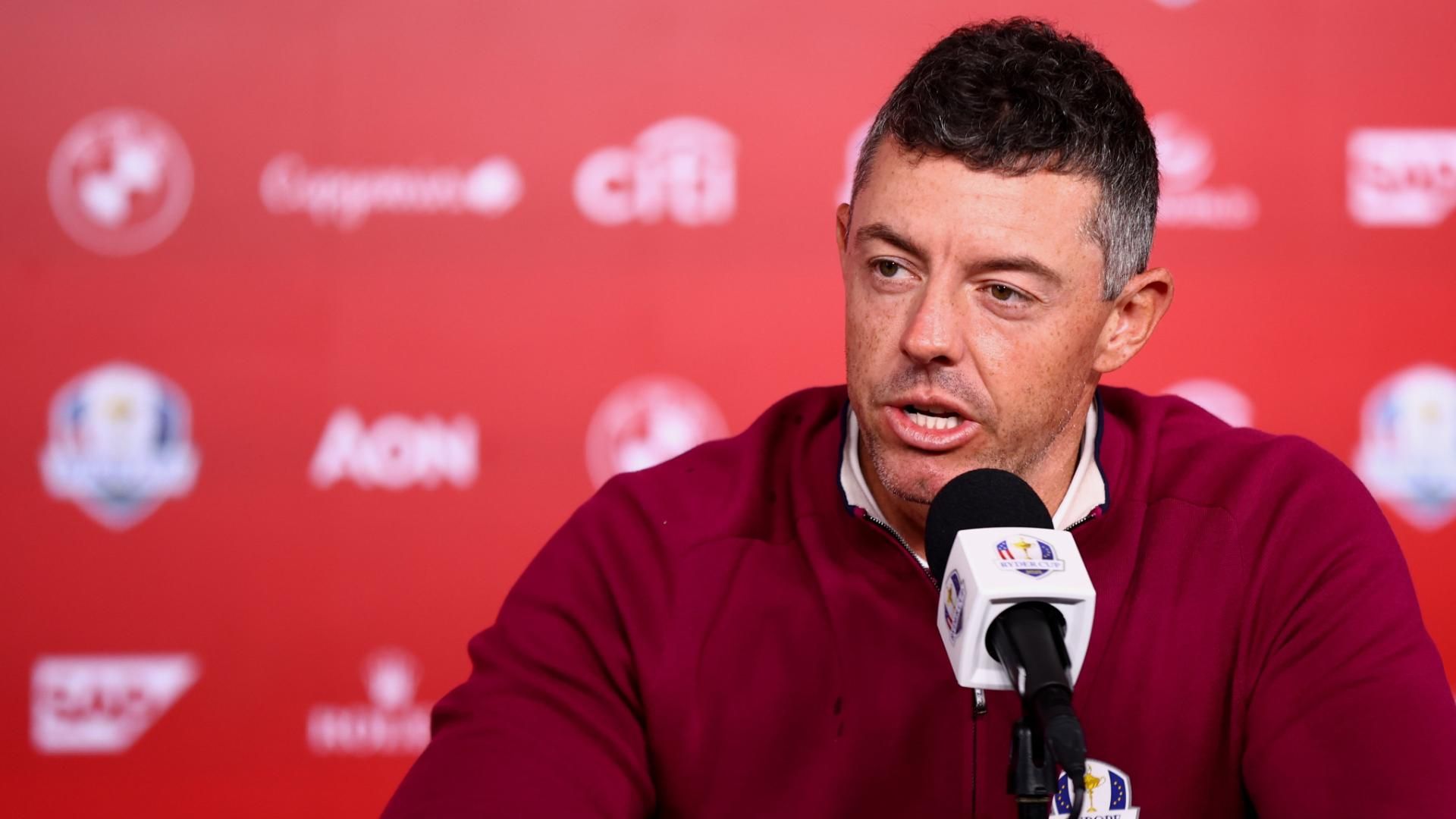Buster Olney

Buster Olney
ESPN Senior Writer
- Senior writer ESPN Magazine/ESPN.com
- Analyst/reporter ESPN television
- Author of "The Last Night of the Yankee Dynasty"
Jesse Rogers

Jesse Rogers
ESPN Staff Writer
- Jesse joined ESPN Chicago in September 2009 and covers MLB for ESPN.com.
Sep 25, 2025, 07:00 AM ET
THE 47,394 FANS gathered at Coors Field were on their feet. They were excited. They were loud. And the team most of them were there to see was closing in on a tight victory.
The only problem? It was the visiting Chicago Cubs that were leading in that ninth inning and moments later would secure a 4-3 win over the Rockies, sending Colorado to its 98th defeat of the season. Afterward, one Colorado player estimated that 75% of the fans that late-August day were rooting for the Cubs.
"It has gotten to a point -- especially me being from here -- where it's something I don't enjoy seeing in my home ballpark," pitcher Kyle Freeland, a Denver native and one of the longest-tenured Rockies, told ESPN. "Inside of our own ballpark, when we have 60/40, sometimes 70/30 split of fans from the other side, it eats at you a little bit."
That kind of scene has become commonplace in Denver, and while the Rockies' overall attendance still ranks in the middle of the pack -- in part thanks to those visiting fans -- it has taken a precipitous hit since Colorado last made the postseason in 2018. The Rockies drew more than 3 million fans that year, with most of them presumably rooting on the home team during a stretch of consecutive playoff appearances.
"Despite where they are in the standings, it's still a sleeping giant of a franchise," according to one rival executive. "Whoever can win there will have massive fan support."
Winning isn't something the Rockies do often these days. This is the third straight year the Rockies will finish with 100 losses, though they will narrowly avoid setting the modern record (121) for a single season, established last year by the Chicago White Sox. Colorado ranks 29th in runs scored and 30th in runs allowed, and its minus-412 run differential is easily the worst in the modern era.
Despite the results on the field, there is some belief around the organization that hitting rock bottom might be an eye-opening moment for a franchise that has had a reputation for being insular and reluctant to change during its three decades of existence.
The Rockies fired longtime manager Bud Black in May after a 7-33 start, and will likely make changes in the front office after the season, according to league sources. They also chose Walker Monfort, the son of owner Dick Monfort, as their incoming executive vice president, and there is real hope within the organization -- and an expectation outside the organization -- that the younger Monfort will be an agent of badly needed change, as he takes over for outgoing president Greg Feasel.
"I think you have to look in the mirror at three 100-loss seasons in a row, and I think you have to look at what kind of changes can be made and how do you get this thing back trending the other direction," former Rockies star Matt Holliday said in a phone interview earlier this month. "We all have seen what the city can look like as far as the baseball town goes and what the fan base looks like when you're playing well and the buzz it creates in that city."
Holliday has a renewed vested interest in the Rockies' well-being after his son Ethan was drafted by them in the first round over the summer. Not surprisingly, he can't point to just one thing which has brought the franchise to this moment in time, citing return on trades, player development and some bad luck in the form of veteran Kris Bryant's nagging back injury, as contributing factors to the Rockies' demise. The organization is amid an autopsy, hoping better days are ahead after a miserable run -- worse than even its inaugural days as a franchise.
"I think what we've realized is over the past several years, the plan that we had did not come to fruition the way that we expected it to," Walker Monfort told ESPN. "The [attendance issue] doesn't bug me as much as it motivates me. I know that if the roles were reversed, it would be 80/85 percent Rockies fans here. And so, our goal is to reverse those roles, turn this team into a winning ballclub, a competitive year-in-and-year-out ballclub."
Freeland added: "I'd be lying if I said it hasn't been difficult, especially the past three years where we've had some really bad seasons, some bad injuries and we've played some bad brand of baseball.
"It's been difficult, mentally."
THE ROCKIES' DESCENT has been relentless, maybe inevitable, after years of decisions that have turned out badly. Every team's past draft choices provide opportunities for second-guessing, but the lack of performance equity gleaned from Colorado's picks over the past decade is stunning. The players drafted by the Rockies over the past 10 years have accumulated about 10 combined WAR. That is, by far, the fewest for any franchise. In fact, no other team has received less than 20 WAR from draft picks during this span. And for the sake of comparison, the draftees that became the core of the Houston Astros during their period of perennial contention generated 110 WAR, and the St. Louis Cardinals, almost 100.
Because of how consistently they have lost, the Rockies have picked eight players among the top 10 draft selections since 2015, and you might not recognize their names, a roll call of players who never lived up to the expectations of Colorado's talent evaluators. Riley Pint. Zac Veen. Benny Montgomery. But you probably have heard of some of the players passed over by the Rockies in the past decade: Garrett Crochet. Colson Montgomery. Jackson Merrill. Among many others.
In 2023, the Rockies had the ninth pick and selected right-handed pitcher Chase Dollander, ahead of Matt Shaw, now the Cubs' third baseman, or catcher Kyle Teel, who became the centerpiece of the Boston Red Sox's deal for Crochet, or Bryce Eldridge, the masher recently promoted to the big leagues by the San Francisco Giants. A rival evaluator recently mused about the logic behind that choice: What was the plan for Dollander? How was his path going to be different from the many, many pitchers the Rockies' staffers have tried to draft and develop? It's a given that Colorado has more difficulty fostering pitching than any other team, because of the inherent challenges of playing a mile above sea level -- and so how was the plan for Dollander going to result in a better outcome? If there was no reason to expect change for a resource of that importance -- the ninth pick -- would the Rockies have been better off aiming for a position player?
Dollander reached the big leagues this season, less than two years after being drafted, and has a 6.52 ERA in 21 starts, allowing 71 runs in 98 innings. Dollander has had some good outings, struggled in a lot of others, and he is on a trajectory similar to that of so many Colorado players before him. To the rival evaluator, this -- and the on-field results -- reflect a stagnation of thought in the Rockies' organization.
In the eyes of many sources in the industry, including some who have worked for the Rockies, Colorado owner Dick Monfort is responsible for this malaise. The 71-year-old owner is well-liked within the industry; everybody who knows him has something nice to say about him. Among the owners, he is known as outgoing, gregarious and respectful. ("He might have the best relationships with the other owners, overall, than anyone else," one source said.) Employees see him as approachable and extremely supportive. And, to some evaluators, he is loyal to a fault, sticking to the status quo while the rest of the industry is rapidly changing. Walker Monfort, who was made available in response to a request for owner Dick Monfort, defended his father. "He is a loyal individual, and we're not going to discredit him for that."
The Rockies have seemingly been stalled in the middle of a superhighway of data and analysis, with other organizations zooming past them, using creative thought to refine everything from their trade processes to scouting to swing decisions to pitch selection.
For years, Dan O'Dowd ran the Rockies' baseball operations, and he was seen by his peers as innovative and open-minded as he tried to solve the challenges inherent to playing baseball in Colorado, utilizing a humidor, adjusting the strategy of pitcher development and use. The Rockies had some success, reaching the 2007 World Series and the 2009 playoffs. O'Dowd left the Rockies after the 2014 season, and since the Rockies reached the playoffs in 2017 and 2018, the franchise has largely fallen into a state of baseball rigor mortis.
As teams have prepared for the trade deadline in recent years, anticipating what other clubs might do, the Rockies have often been dismissed into a category all their own because of their erratic and unpredictable decision-making. There are adders, there are unloaders and there are the The-Rockies-And-Who-The-Hell-Knows, because Colorado has so often followed a logic all its own, the moves overseen by the elder Monfort. The Rockies have had lost years in which rival executives believed the team had valuable trade candidates who could've been flipped to improve the organization. Instead, the message coming out of the front office was: We're not subtracting, with the decisions attributed to Monfort.
Bill Schmidt has been the team's general manager since May 2021, promoted after 22 years in the organization to replace Jeff Bridich; Bridich was also promoted from within. "They haven't looked at outsiders," one source said. "It's been a long time since they looked outside the organization. It's been a long time since they had a real search. They don't believe in cross-pollination."
In this era, other teams scour the industry for front-office talent with even more aggressiveness than they seek players, offering more money or better jobs, more opportunity for growth. "You'll see some Rockies scouts, and someone will say, 'He's been with them for 20 years,' or 'He's been with them for 31 years,'" a rival evaluator said. "They're good people, but..."
But ... they are at or near the bottom in finding major league players, the record suggests, and there isn't a lot of change. And there is a belief that nothing will change unless Dick Monfort makes it happen, according to league and team sources, because of his tight oversight of baseball operations.
The Rockies aren't viewed as cheap by other teams, posting payrolls over $100 million for each of the past 10 seasons, growing as high as $172 million, in 2023. However, they have not been effective in how they spend their money. In spring 2022, Monfort signed free agent Kris Bryant to a $182 million contract that shocked many in the industry, because of Bryant's declining performance and expanding injury history.
Executives of other teams thought Colorado overpaid Bryant by many tens of millions. "And what difference did [Monfort] expect that he was going to make?" one asked rhetorically. Bryant has played 170 games in his four seasons with Colorado, hitting just 17 homers with a .695 OPS, and generating -1.6 WAR. This year, the 33-year-old Bryant played in 11 games and hit zero homers before being lost for the season with a degenerative back injury; he's owed $81 million for the next three seasons.
"I'm a big part of some of the failures here right now," an emotional Bryant told ESPN. "It eats at me every day ... I'd rather go out there and suck as a baseball player than sit here in pain every day."
The Rockies have signed some of their own prospects to long-term deals -- aiming for cost certainty and buying out free agent years, as teams like the Atlanta Braves have done -- and those contracts haven't really worked out, either.
One rival evaluator acknowledged that the Rockies' challenge in developing pitching is different and more difficult than any of the other 29 franchises. "But you can't just do the same thing over and over," he said. "You can't complain about it. You have to figure out a way to solve it. You have to come up with new ideas, a new process, a new plan, bring in new people."
It is the same dynamic that players face all the time, the evaluator continued. "If you aren't performing, you try something different," he said. "You tinker with your swing, you're shortening it, adding strength, talking with coaches. You go to Driveline; you think about a new pitch. You're trying to get better."
Are the Rockies capable of change? We're about to find out.
AT THE END of June, the Rockies announced Walker Monfort's promotion to a crucial executive role. Unlike some of his scion peers in the game, Walker Monfort's climb through the organization did not begin near the top. He worked as part of the Rockies' grounds crew, as an attendant in the visiting clubhouse, in ticketing; he spent time as part of the player development staff, before shifting to the business side. There was no understanding between father and son, Walker recalled, of any promises of promotion. On the day he was introduced, Walker Monfort acknowledged -- and embraced -- the questions of nepotism.
"I think since Day 1 here at the Rockies, I've tried to use that as something to motivate me to actually prove people wrong," the younger Monfort said. "I put my work in, just like everyone else here, and I do think I've done a good job leading by example."
Like his father, Walker Monfort is regarded by peers as highly personable. And there is a thought, among those who work for other teams and know him, that he could be the energy behind a transition that the Rockies need. In theory, sources say, he could shake up the franchise's infamous intransigence, and that perhaps, a trusted son could convince his father to bring in new voices, new ideas. "He's the right person to do this," a former club employee said.
Walker Monfort said in an interview this week, "I feel really good about it, excited about how we're going to move forward." His words seem to echo the thoughts of some of the former Rockies, like Holliday.
"When we've had a season like we've had, after two 100-loss seasons, it gives you an opportunity to look in the mirror," Walker Monfort said. The Rockies have to evaluate their systems, their resources, their organization, he added. "We're willing to look at all of that."
There is an expectation within the industry that there will be changes in the team's baseball operations -- but as one evaluator noted, that expectation has existed for a couple of months. To date, no new hirings have been announced. The delay is -- well, classic Rockies, in the eyes of some rival evaluators.
"I'm not sure what they are waiting for," a rival executive said. "What's the point in waiting? You've had a chance to get this started. We're five weeks from the end of the World Series, when you're supposed to be ready to acquire players. If you had started turning this over in August, then you'd have somebody hired and that person would be able to get people in place, and that'd give you time to start [developing] a new process."
A new process, a new strategy, a new message. Rebuilding the organization from the ground up -- and that's what this would be, if the Monforts hire someone from another organization to oversee baseball operations and affect real change -- takes a lot of time. The Rockies' delay in moving forward might be an example of the loyalty for which Dick Monfort is known, with a sensitivity for those affected by change.
But some sources who know both Dick and Walker Monfort believe that Walker will be empowered to push the Rockies forward, drawing upon and hiring folks from outside the organization.
One evaluator says that if the Rockies are willing to hire a new head of baseball operations department, there would be a long line of talented candidates frothing at the opportunity to take the Colorado job. Like ambitious mountain climbers excited about solving the puzzles unique in the Rockies' ascent -- just as when Theo Epstein took over a team historically known as lovable losers in Chicago, and then built the franchise's first champion in 108 years. "You'd have a lot of smart people who would want to try to tackle that," another evaluator agreed.
EVEN DURING THE final month of a season that will be remembered for all the wrong reasons, not every fan at Coors Field is there for the visitors. There's still a loyal vibe in Denver, but many longtime Rockies fans are finding it harder and harder to support ownership. The fall from sixth in attendance in 2019 to 15th in 2025 pairs with the team's drop in the standings and helped provide a needed wake-up call for the organization.
"I need to speak truth to ownership, and I think we have to be realistic to our expectations, so that's one of the biggest focus points," former Rockies manager and current interim bench coach Clint Hurdle said. "I share what I see. I share what my thoughts are and if they'll ask me, how would you go about it? I might share some navigational options."
Those around the Rockies want the team to take a hard look at the competition and learn from the franchises that are operating at another level right now, whether that is how some smaller markets compete annually despite monetary restrictions or how the bigger markets use their resources beyond payroll to maximize talent. It's in these areas where those close to the organization believe a new voice or two from the outside could be paramount.
"We have to look at all processes that we do organizationally -- and my position is one of them of course -- and we have to honestly look in the mirror and determine what works and what doesn't and whatever doesn't work, we need to fix it, and we need to honestly evaluate ourselves," interim manager Warren Schaeffer said. "That's really the only way to move forward."
Schaeffer was asked for an example where the team could improve -- where other teams already are better.
"Just the information that the players are provided with in terms of how to get better and prosper at this level," he said. "We could do better."
The irony in hitting rock bottom for a franchise is that it provides clarity on arrival. The Rockies have avoided spinning their woes into anything other than what they are: an organizational failure. The first step in recovery is understanding the problem. Fixing it is a whole other issue. Colorado is just beginning the process.
"There are a lot of fingerprints on success," Hurdle said. "There's a lot of fingerprints on challenges [failures], but you get to the point where you almost got to rip the rearview mirror off."

 2 hours ago
1
2 hours ago
1

















































